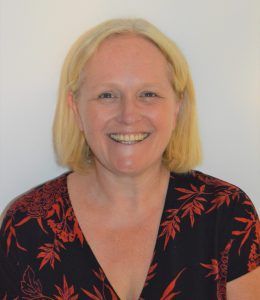EARLY YEARS AND FOUNDATION STAGE
Bienvenida de la Directora de EYFS
Our EYFS classes emphasize these expectations through their focus on creating the best possible first learning experiences for each child. The teaching team focus on laying secure foundations for each child’s future learning and development, while embracing and enhancing this early stage in children’s life, not just in education.
As the children move through Primary where learning becomes more formalized, it is important to us that we maintain our child-oriented approach. We aim to create independent, confident learners by focusing on learning skills and behaviours, while increasing academic rigor as the child ages.
No matter the age, we want the very best for each and every child.
Warm regards,
Nicky de Comarmond
Head of Primary
Pupils aged 3 to 5 follow the Early Years curriculum. In each age group we guide our students to develop their potential at their own pace. We make sure to adjust our curriculum based on the interests of each child through playful activities appropriate for the development of the seven learning areas.
The Early Years Foundation Stage is divided into the following learning commitments:
- A unique student
- Positive relationships
- A conducive environment
- Learning and development
We monitor the progress of our students, evaluate the activities carried out and observe each of them to determine the point of development they are at and plan the next phases appropriately. Through a thematic approach to planning and organization, we have the ability to provide our students with opportunities in each area of learning. We inform parents about the topics we cover through communications and parent information boards.
Foundation Stage 1
Our Foundation Stage 1 students are beginning their foundational educational stage. They are introduced to the game-based learning system and gain confidence by participating in the activities organized by the department.
Foundation Stage 2
Once Foundation Stage 1 is completed, students move on to Foundation Stage 2, where the emphasis is on our students learning through creativity and exploration, developing language and mathematical skills in the inspiring environment of the department.
The Early Years Foundation Stage curriculum is divided into seven areas:
1. MATHS
Your child will develop an understanding of number, shape, space, and measurements at the appropriate age. Songs, games, and picture books help children become aware of number sequences and eventually help them understand and perform simple mathematical operations such as addition and subtraction. Maths resources are readily available for all children both indoors and outside.
2. COMMUNICATION AND LANGUAGE
This area develops children’s competences in listening and comprehension alongside speaking and expression. Opportunities are used throughout the day to develop these skills in a range of different contexts. In both large and small groups, children are encouraged to extend their vocabulary and fluency by talking, listening, and by hearing and responding to stories, songs, and rhymes.
3. PERSONAL, SOCIAL, AND EMOTIONAL LEARNING
Your child will learn to develop a sense of self, cooperate with others, become more independent in their daily routines, and learn how to manage their feelings and behaviour. Children are given opportunities to take responsibility for themselves, others, and belongings. Children learn about other cultures and develop respect for other religions.
4. UNDERSTANDING THE WORLD
A safe and stimulating environment allows children to explore with a range of materials. They learn to observe the features of objects and substances, recognising differences, patterns, and similarities and to share and record their findings. Children are assisted in exploring and understanding their personal environment. A range of safe equipment enables children to extend their technological understanding using simple tools and techniques to solve problems in addition to having access to touch screen and computers. They learn to use simple computer programmes specifically designed for the early curriculum, which not only develops their technological literacy, but facilitates their learning.
5. PHYSICAL DEVELOPMENT
The Early Years Foundation Stage students have access to outstanding facilities to enhance physical development. The specialist outdoor and indoor learning areas are used to develop their physical skills and a high level of adult supervision enables children to create and meet physical challenges safely. In addition to athletic activity, children are supported in the development of their fine motor skills required to use tools, pencils, and scissors with increasing independence. They develop an understanding of the basic notions of how to lead an active and healthy life.
6. EXPRESSIVE ARTS AND DESIGN
Children are encouraged to utilise a wide range of resources in order to express their own ideas and feelings. They have many opportunities to use their imagination creatively and to process their own experiences using art expression. Using various art materials including paint, clay, charcoal, glue and crayons as well as natural and recycled materials children can explore through open-ended activities. Children develop skills in painting, drawing, modelling as they are given many opportunities to experiment in these areas. Children participate in reading stories and singing along to music, providing them with daily opportunities for imaginative role play both individually and as part of a group. The learning environment is set up to promote play and give students opportunities to engage in imaginary play.









